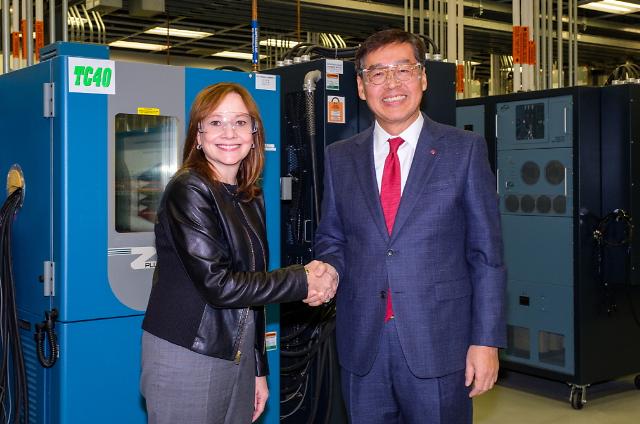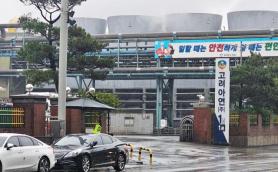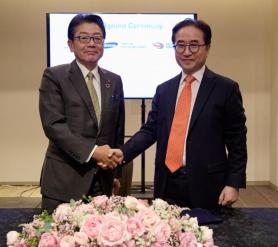
[Courtesy of LG Chem]
Under the deal, signed at the GM Technical Center in Warren, Michigan, the two companies will work together to develop and produce advanced battery technologies, according to a statement published through GM's website. LG Chem said that the construction of the joint venture plant will begin in the middle of next year with the goal of securing more than 30GWh in production capability.
The tie-up followed GM's $28 million investment in its Warren, Michigan battery lab announced late last year and the recent sale of GM's manufacturing complex in Lordstown to Lordstown Motors Corp. for the production of battery-electric trucks. GM has announced plans to introduce at least 20 new all-electric models by 2023.
"With this investment, Ohio and its highly capable workforce will play a key role in our journey toward a world with zero emissions," GM Chairman Mary Barra was quoted as saying. "Combining our manufacturing expertise with LG Chem’s leading battery-cell technology will help accelerate our pursuit of an all-electric future."
The deal with GM will help LG Chem minimize the risk of large-scale investments in the rapidly growing U.S. market. Battery makers in South Korea, China and Japan have been locked in a fierce battle to expand their share in the market for electric vehicle batteries. According to SNE Research, a market researcher, South Korean companies cornered 19.7 percent of global battery shipments for electric vehicles in the first half of this year. China accounts for 52.9 percent and Japan 27.4 percent.
LG Chem, which has a battery plant in Holland, Michigan, will benefit from a dedicated production stream of future electric vehicles from GM's next generation of battery-electric vehicles, including an all-new battery-electric truck coming in the fall of 2021, the statement said.
"Our joint venture with the No. 1 American automaker will further prepare us for the anticipated growth of the North American EV market, while giving us insights into the broader EV ecosystem," said LG Chem CEO Shin Hak-cheol. Through its battery plants or joint ventures at home and abroad, LG Chem aims to boost its total production capacity from 70 GWh and 100GWh in 2020.
To maintain a competitive edge in technology, LG Chem and other South Korean companies are trying to produce third-generation batteries.
Copyright ⓒ Aju Press All rights reserved.



